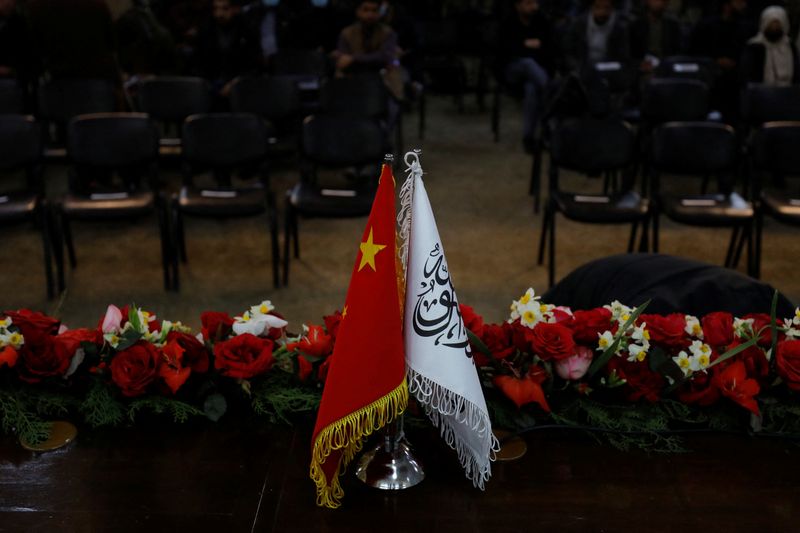By Charlotte Greenfield
(Reuters) -The Taliban's acting governor of the Afghan central bank met China's ambassador this week to discuss banking relations and business, the bank's spokesperson told Reuters on Friday.
Afghanistan's banking system has been severely hampered by U.S.-led sanctions, a drop in liquidity from frozen central bank assets and a cut in development spending. Regulatory risk concerns of international banks have also largely cut off the country's formal banking sector from the global financial system.
China does not have formal diplomatic ties with Afghanistan but has continued to maintain an embassy in Kabul since the Taliban took over the country in 2021. Beijing has recently signalled economic interest in its neighbour, and although some Chinese business executives have raised security concerns, they have said they are looking into investment opportunities, especially in mining.
"In this meeting, economy, banking relations, business and some related topics were discussed," the bank's spokesperson Hassibullah Noori told Reuters, adding the meeting took place on Thursday in Kabul between Ambassador Wang Yu and acting governor Mullah Hidayatullah Badri.
The Chinese foreign ministry spokesperson's office said in a statement to Reuters that the ambassador had met Badri and other heads of "relevant departments" in recent days.
"Both sides exchanged opinions on strengthening China-Afghanistan cooperation in areas such as the economy and trade," the statement said, adding financial sanctions on Afghanistan were hampering the country's development.

"China has always supported the peaceful reconstruction of Afghanistan, provides sincere help to Afghanistan, and welcomes Afghanistan to join the Belt and Road Initiative," it said.
Badri is a senior Taliban figure who became acting head of the central bank in March after stepping down as acting finance minister. He was head of the economic commission of the Islamic Emirate, as the Taliban refer to their government, as they conducted a 20-year insurgency against the former Western-backed government of Afghanistan, according to Taliban officials, and he ran most of the Taliban's fundraising operations at the time.